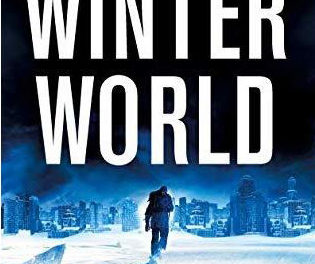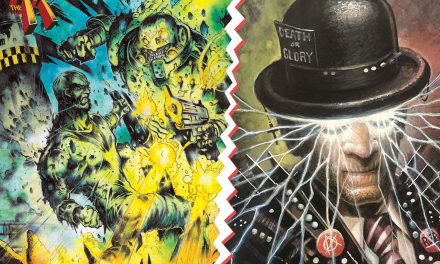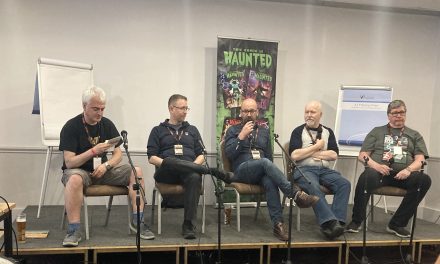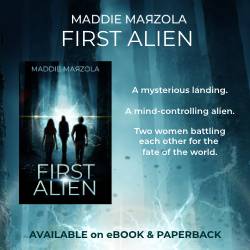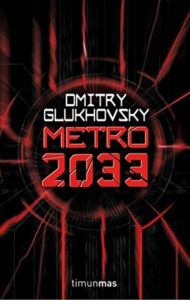 The bleak opener to a series which inspired an acclaimed clutch of first-person shooter games (sequels, reduxes, limited editions, etc), Metro 2033 imagines a grim, post-apocalyptic future Moscow.
The bleak opener to a series which inspired an acclaimed clutch of first-person shooter games (sequels, reduxes, limited editions, etc), Metro 2033 imagines a grim, post-apocalyptic future Moscow.
Forced underground by deadly radiation, the city’s remaining people subsist in a converted, defunct subway system, a nation fractured into tribal factions. In a somewhat depressing consistency with our present, Twentieth Century ideals don’t die even when everything green does: among the rival factions are Nazis, fascists of every stripe, communists and, inevitably, capitalists.
Glukhovsky’s novel leaves the reader to decide if this is more or less horrifying than the mutated creatures living below ground – among them killer mutant mammals and the vampiric Dark Ones who exist mostly in rumour and fireside tales.
The action is narrated from a single point of view: Artyom, a twenty-four year old factory worker and part-time soldier (a shared occupation in VDNKh, his home station which, like many, operates under a kind of martial law).
Artyom isn’t a particularly engaging hero as the novel begins – though desperate for a way to distinguish himself, he isn’t The One, The Ringbearer, lacking in special gifts or even much of an interior life. Artyom is a blank reader avatar for much of Metro 2033, reactive not proactive. As the story progresses, he’s by turns bored, excitable, twittish, thoughtful or cowardly. Ultimately, ordinary for the world he inhabits.
Artyom is, however, The Boy Who Lived. It isn’t a spoiler to state that Metro 2033 resurrects the classic Dead Parents trope of children’s and genre fiction. He loses his family young; to a nightmarish cavalcade of cannibalistic rats. Save for a not-that-paternal adoptive father, and a not-that-memorable best friend, there’s precious few people to care much about Artyom’s fate, which, of course, leaves him free to embark on a dangerous mission.
In truth, the reasons behind the mission are almost irrelevant. Where Metro 2033 truly shines is not in its quest, or even the careful world-building. The mammoth information dumps on Metro’s political and trading systems too often prove a needle-scratch, yanking the reader out a suspenseful, high-concept story. Better is the evocation of an oppressive atmosphere of mistrust and creeping menace, playing on universal human fears of the dark and the unknown, as well as anxieties about the intersections between belief, credulity and madness.
Metro 2033 is also rich in imaginative details of an etiolated, often harsh, sometimes hyper-masculine life short of beauty, domestic comforts (and strangely, either humour or women in any social or working sphere) while judicious with overt gore and shocks.
The plot loses some propulsion when it spends more time in Artyom’s head than out of it, but Metro 2033 makes a valiant stab at doing more than eliciting fear. The novel’s intellectual and limbic engagement would be more effective if more time were spent on emotional entanglements as well as ideological and military ones – it proves hard to care for long about people whose motivations are either completely opaque or rather obvious.
M.M. Hattab
Purchase on:
eBook
Amazon US | Amazon UK | Kobo
Paperback:
Amazon | Barnes & Noble | Waterstones


